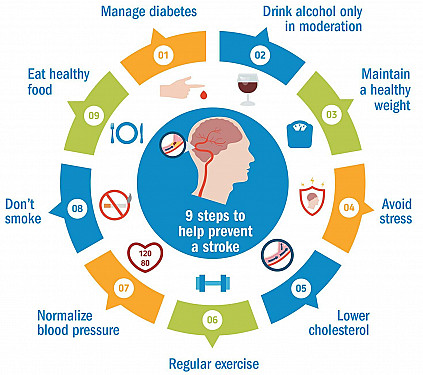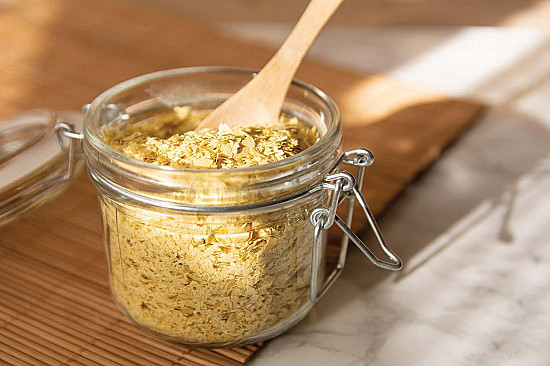Longevity: Lifestyle strategies for living a healthy, long life
- Reviewed by Robert H. Shmerling, MD, Senior Faculty Editor, Harvard Health Publishing; Editorial Advisory Board Member, Harvard Health Publishing

If longevity runs in your family, you have a better chance of living longer. But genetics is only part of the equation: the lifestyle choices you make play a big role in living longer, staying healthy, and being able to continue doing the things you love.
What is longevity?
Longevity simply refers to long life. In the U.S., life expectancy has increased dramatically since 1900, when the average lifespan was 47 years. Today, people born in 2022 can expect to live 77.5 years.
Experts estimate that about 25% of the variation in human life span is determined by genetics. But the rest can be attributed in large part to how we take care of our bodies.
And that's important because there is more to longevity than duration. Most us don't want to just live longer — we want to live longer while enjoying a good quality of life.
There are simple things you can do to be your healthiest, most active, most productive self while living longer. The keys to perhaps living to age 100 or more are a healthy diet, regular physical activity, and good lifestyle choices.
How good nutrition promotes longevity
What you eat has a direct impact on the cells in your body — which in turn has an impact on longevity.
A healthy diet provides cells with vital sources of energy and keeps them stable and working as they should. Healthy foods support your immune cells, which defend against infections and other health threats, protect other cells from damage, and help the body repair or replace damaged cells.
A diet high in sugar, unhealthy fats, and processed foods, on the other hand, can leave cells throughout the body more vulnerable to damage and poor function. This can lead to an increased risk of infection, cancer, inflammation, and chronic diseases such as diabetes, cardiovascular problems, and obesity.
An excellent diet for promoting longevity is a plant-based diet. A study published in JAMA Network Open found that women who most closely adhered to the plant-based Mediterranean diet, which emphasizes vegetables (excluding potatoes), fruits, nuts, whole grains, legumes, and fish, and minimizes red and processed meat, were 23% less likely to die from any cause than women who did not closely adhere to this dietary pattern.
A plant-based diet involves eating lots of fruits and vegetables, beans, nuts and seeds, and whole grains instead of processed foods. Foods from plants are high in antioxidants such as beta carotene, lycopene, and vitamins A, C, and E, which protect cells from damage.
Following a plant-based diet doesn't mean you need to become a vegetarian, or never have meat or a dessert. It simply means that most of the foods you eat should be minimally processed and come from plants.
The role of exercise in promoting longevity
A multitude of studies show that physical activity contributes to greater longevity, due to the many positive effects it has on the body. These effects include stronger heart and lung function, improved health of blood vessels, stronger muscles, better balance, and a healthier weight.
Being more active may lower your risk of heart attack, stroke, falling, and diabetes, among other benefits. Together, these benefits contribute to a longer lifespan. Physical activity can also improve your mood and help you sleep better.
How much physical activity do you need to help you stay healthy and live longer? The 2018 Physical Activity Guidelines for Americans recommend that adults get at least
- 150 minutes a week of moderate activity, or
- 75 minutes a week of vigorous movement, or
- an equivalent combination of both intensities.
Moderate physical activity includes walking, weight lifting, and lower-intensity exercises. Vigorous exercise includes running, bicycling, and swimming. Even household tasks like cleaning and gardening count as exercise. So does lifting small hand weights or doing leg lifts while watching TV. The guidelines also recommend muscle-strengthening activities on two or more days per week.
The bottom line is that moving more can extend your life.
Other lifestyle choices that contribute to longevity
In addition to healthy eating and being more active, the following lifestyle choices can have an enormous impact on longevity and quality of life.
- Don't smoke. Smoking has been proven to shorten lifespans. Smoking damages lung function, hearth health, skin health, and oral health, and it increases the risk of cancer. If you don't smoke, don't start. If you do, there are many effective ways to quit, including medications that can help with smoking cessation.
- Limit alcohol. Excessive alcohol use increases your risk of liver damage, cancer, and serious accidents. It can impair your immune system and result in depression. Drinking alcohol in moderation means one drink or less per day for women and two drinks or less per day for men. Drinking even less or not at all is better for your health, however, because even moderate drinking can have health risks.
- Get enough sleep. Getting quality sleep is vital to good health and well-being throughout your life — and may even extend it. Over time, inadequate sleep can raise your risk for chronic health problems, affecting your heart, brain, lungs, immune system, and more. Experts recommend that adults sleep between seven and nine hours a night.
- Hydrate. A recent study of more than 11,000 adults found that those who stay well hydrated appear to be healthier, develop fewer chronic conditions like heart and lung disease, and live longer than those who do not.
- Socialize. A large study of 28,000 people linked longevity with socializing. More frequent social activity was associated with significantly longer survival. In fact, the greater the frequency of socialization, the greater the likelihood of living longer.
- Think positive. You may be surprised that your outlook on life can contribute to longevity. Two recent studies found that optimism is linked to a longer lifespan in women from diverse racial and ethnic groups, and to better emotional health in older men. These studies suggest that positive thinking may have powerful benefits.
Adopting and maintaining healthy behaviors can go a long way toward living a long, healthy life.
About the Author

Lisa Catanese, ELS, Health Writer
About the Reviewer

Robert H. Shmerling, MD, Senior Faculty Editor, Harvard Health Publishing; Editorial Advisory Board Member, Harvard Health Publishing
Disclaimer:
As a service to our readers, Harvard Health Publishing provides access to our library of archived content. Please note the date of last review or update on all articles.
No content on this site, regardless of date, should ever be used as a substitute for direct medical advice from your doctor or other qualified clinician.















